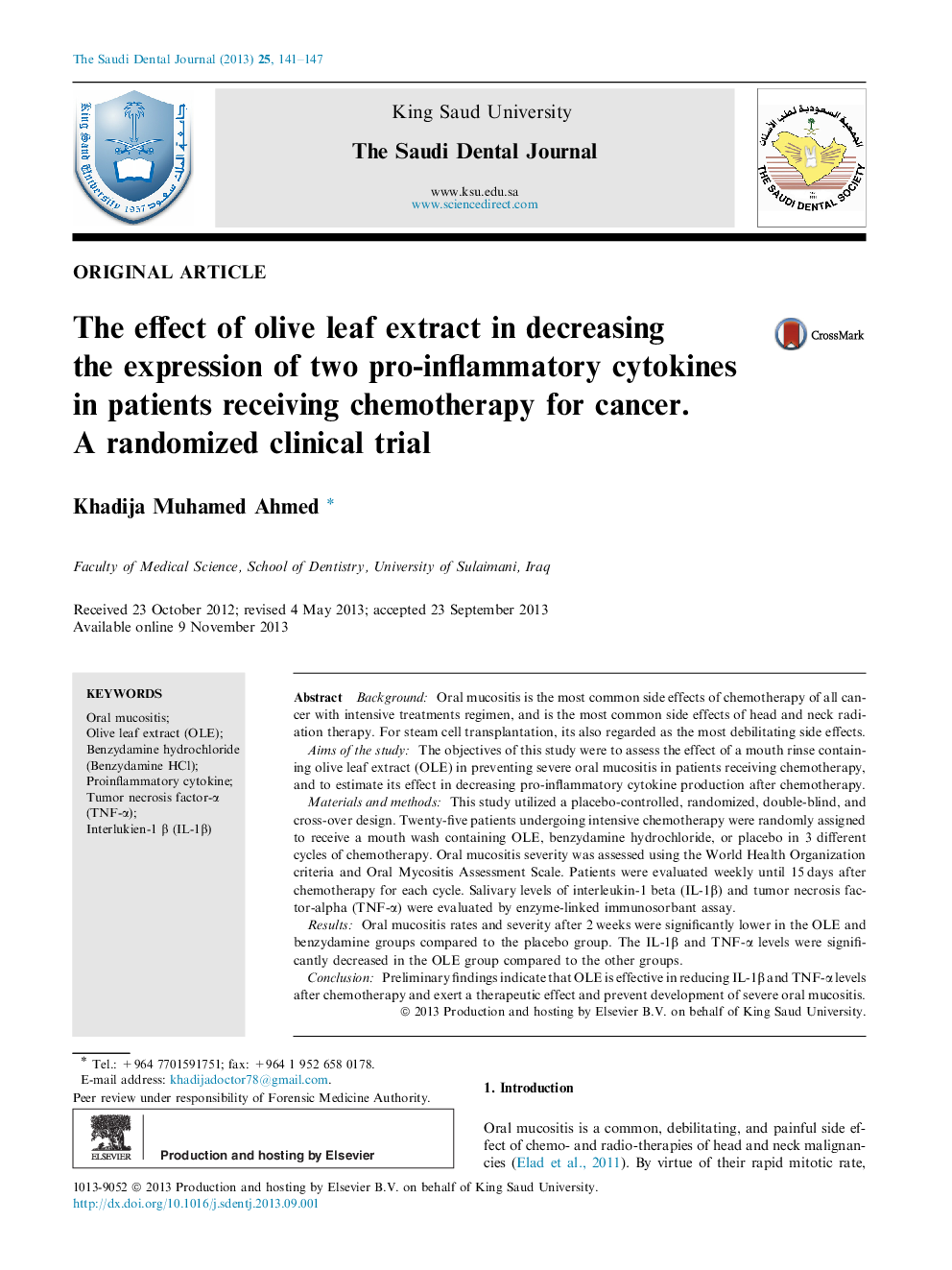| کد مقاله | کد نشریه | سال انتشار | مقاله انگلیسی | نسخه تمام متن |
|---|---|---|---|---|
| 2688869 | 1143155 | 2013 | 7 صفحه PDF | دانلود رایگان |

BackgroundOral mucositis is the most common side effects of chemotherapy of all cancer with intensive treatments regimen, and is the most common side effects of head and neck radiation therapy. For steam cell transplantation, its also regarded as the most debilitating side effects.Aims of the studyThe objectives of this study were to assess the effect of a mouth rinse containing olive leaf extract (OLE) in preventing severe oral mucositis in patients receiving chemotherapy, and to estimate its effect in decreasing pro-inflammatory cytokine production after chemotherapy.Materials and methodsThis study utilized a placebo-controlled, randomized, double-blind, and cross-over design. Twenty-five patients undergoing intensive chemotherapy were randomly assigned to receive a mouth wash containing OLE, benzydamine hydrochloride, or placebo in 3 different cycles of chemotherapy. Oral mucositis severity was assessed using the World Health Organization criteria and Oral Mycositis Assessment Scale. Patients were evaluated weekly until 15 days after chemotherapy for each cycle. Salivary levels of interleukin-1 beta (IL-1β) and tumor necrosis factor-alpha (TNF-α) were evaluated by enzyme-linked immunosorbant assay.ResultsOral mucositis rates and severity after 2 weeks were significantly lower in the OLE and benzydamine groups compared to the placebo group. The IL-1β and TNF-α levels were significantly decreased in the OLE group compared to the other groups.ConclusionPreliminary findings indicate that OLE is effective in reducing IL-1β and TNF-α levels after chemotherapy and exert a therapeutic effect and prevent development of severe oral mucositis.
Journal: The Saudi Dental Journal - Volume 25, Issue 4, October 2013, Pages 141–147